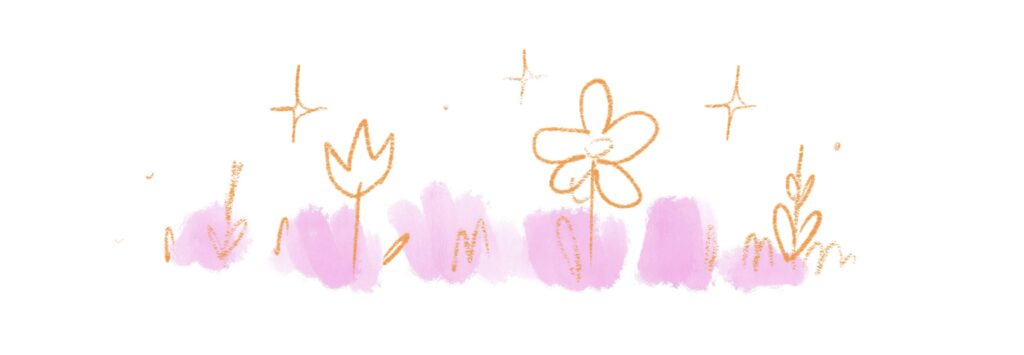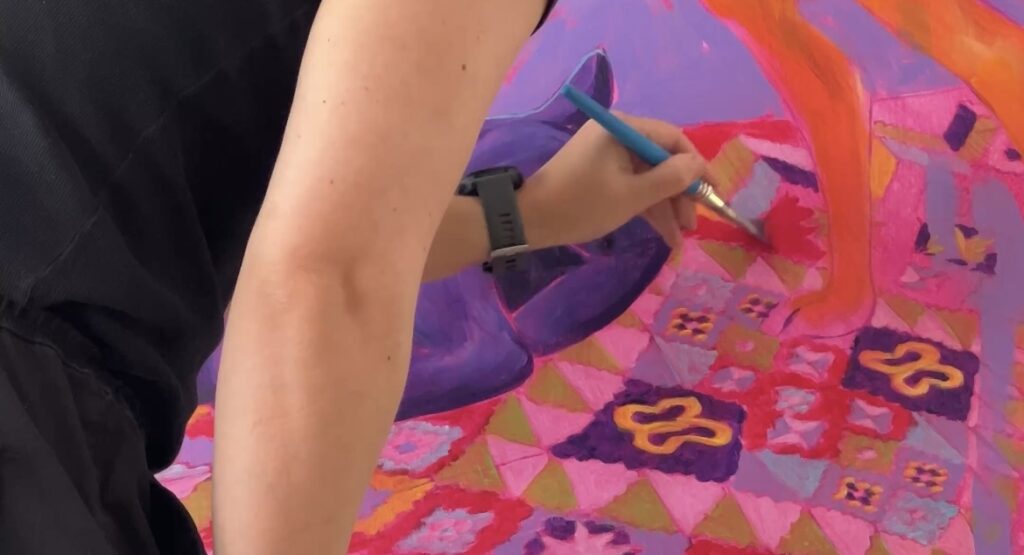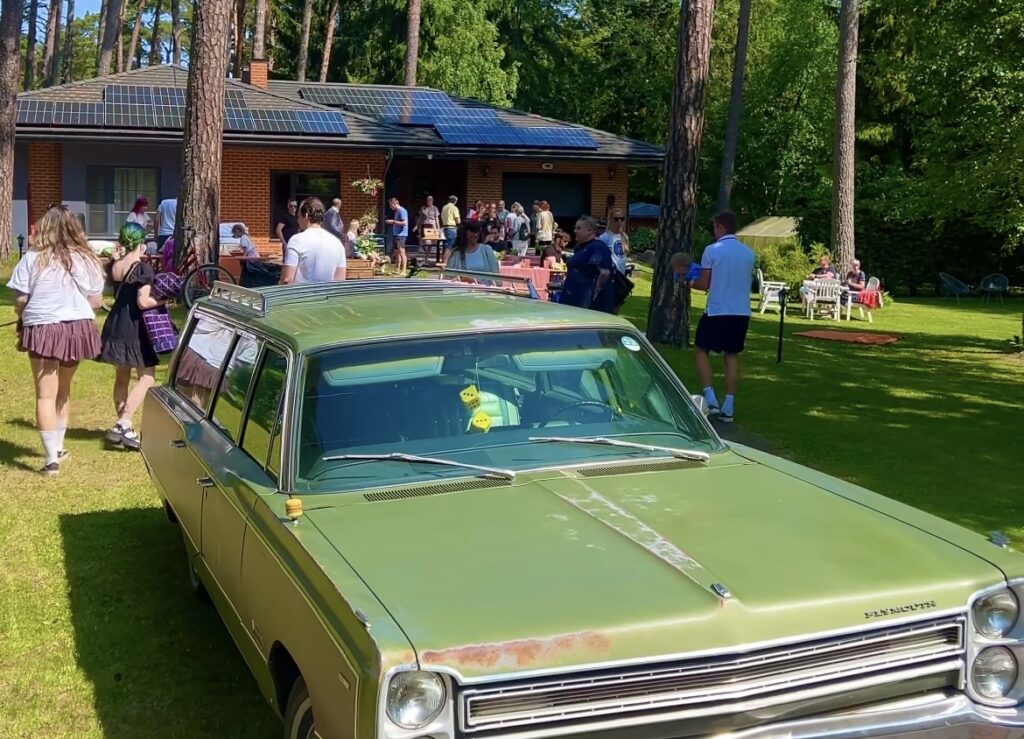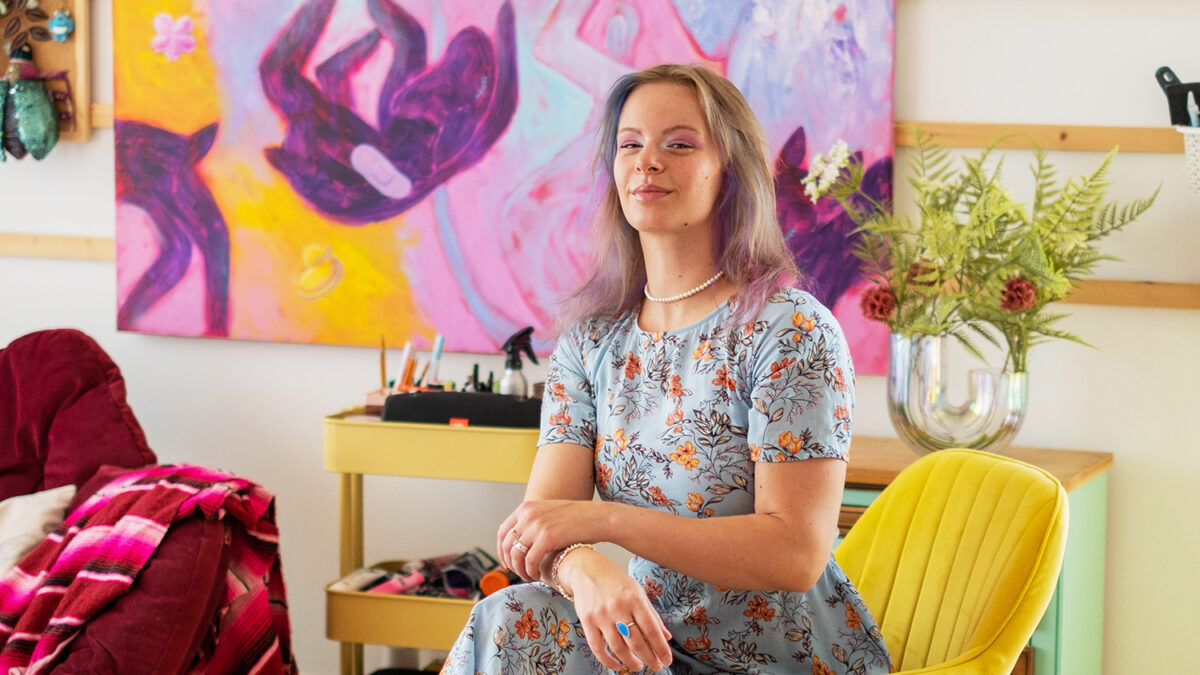One day you just wake up and you’re completely fed up with being in the victim role.
I’ve gone up and down with it quite a bit throughout my life: the biggest fall came after I was diagnosed with autism and ADHD. It’s just part of the process. For me, it’s exactly like the grieving process: denial, anger, bargaining, depression, and acceptance. After two years, I feel like I’ve reached the end of that final phase. That doesn’t mean I don’t occasionally stumble back into the earlier ones, but something has definitely changed: I’ve taken the reins into my own hands.
Of course, the fact that I have a brain disability hasn’t changed. I still can’t cope with things in life that are simple for others—but I’ve realized that it’s not my problem. If I can’t manage something, then those for whom it’s easy can help out. That’s exactly why we were created so differently in this world! I’m emotional and cry at everything, but it’s so much easier to let those emotions out and then return to what I was doing. My nervous system is so much more grateful to me for it! And I honestly admit to myself that I’m an incredibly talented person.
So what’s so fantastic about me? (And also about you, my dear neurodivergent woman who is reading this!)

1. Problem-solving.
I think women in general are amazing problem-solvers, let’s start with that. Add a bucket of neurodivergence to that, and everything moves lightning-fast along paths no one else even thought to see. Autistics have more neuronal connections, and people with ADHD get dopamine from creative problem-solving. ADHD folks are not lazy—they’re extremely efficient. If something is very complex, pointless, and time-consuming, people with ADHD will find a way to simplify the process.
So to companies: I warmly recommend listening to your neurodivergent female team members!
2. Creativity.
It’s no secret that I’ve been an artist all my life and made a living from it effectively. For me, it’s a way to express myself and connect with others.
“But I’m not creative at all…”
Haha, I’ve heard that so many times from my neurodivergent clients… and then slowly it turns out that they knit, embroider, make candles, write poetry, paint, and dream away in their own colorful world. Just because you haven’t monetized your creativity doesn’t mean you’re not creative. Our brains need an outlet, and creativity is the healthiest way to shape all that internal chaos.
The world needs your art—really!

3. Pattern recognition.
I’m pretty sure that throughout history, all kinds of witches and seers were/are neurodivergent women, because we notice recurring patterns. Mostly subconsciously, which gives it that magical feeling.
Pattern recognition can be both mathematical and psychological: finding an error in a company system or noticing behavioral patterns in people.
Of course, this causes us a lot of anxiety and arguments with others:
“Give that person/situation a chance, you never know how great it could turn out!”
But experience and pattern recognition say otherwise.
If we learn to listen to it, we can prevent really crappy situations—and solve problems before they happen!
4. Seeing the bigger picture.
This is gold on a platter for me. Yes, it often drives me crazy how other people don’t connect the dots. But that’s all the more reason to use this skill for developing myself and my community.
How can people not see that growing poverty correlates with billionaires getting richer? That climate change is the biggest issue right now? That politicians’ ridiculous squabbles are meant to distract from real problems?
Anyway!
No matter how upset I get about these things, it doesn’t solve anything. I have to focus on my talent and the tools I can use: art, my voice, and community.
And seeing the big picture can mean different things: resolving relationships in a complex family dynamic, improving profitability and processes in a large team, finding the right target group for a product or service, etc.
In our heads, we play out different options and outcomes—like in chess. The hard part is getting others to understand that we’ve already thought through all the failed options, so we can skip those!

5. Values-based living.
I want to curl up on the floor in the fetal position when I have to do something that adds no value to anyone’s life—not mine, my client’s, or my friend’s. That may seem like a serious brain error to many, but actually the opposite is true: if we can truly make a difference in the world, we do it with such passion—watch out!
It’s incredibly cool how the neurodivergent people around me think on a societal level.
Even if their job isn’t aligned with that, their hobbies and free time are: many create art, participate in community events, do charity work, or at least support others on social media.
So, dear neurodivergent women: the most important thing is to find out what your strengths are and direct all your focus there.
It takes time and experimentation, but the reality is—no one else can do this work for us.
Yes, you’re tired. So very tired…
But the more you channel your energy into things that make your unique brain happy, the more meaning you’ll find in your life.
And please, don’t underestimate yourself: there’s truly so much awesomeness in you!
What do you feel are your strengths?
